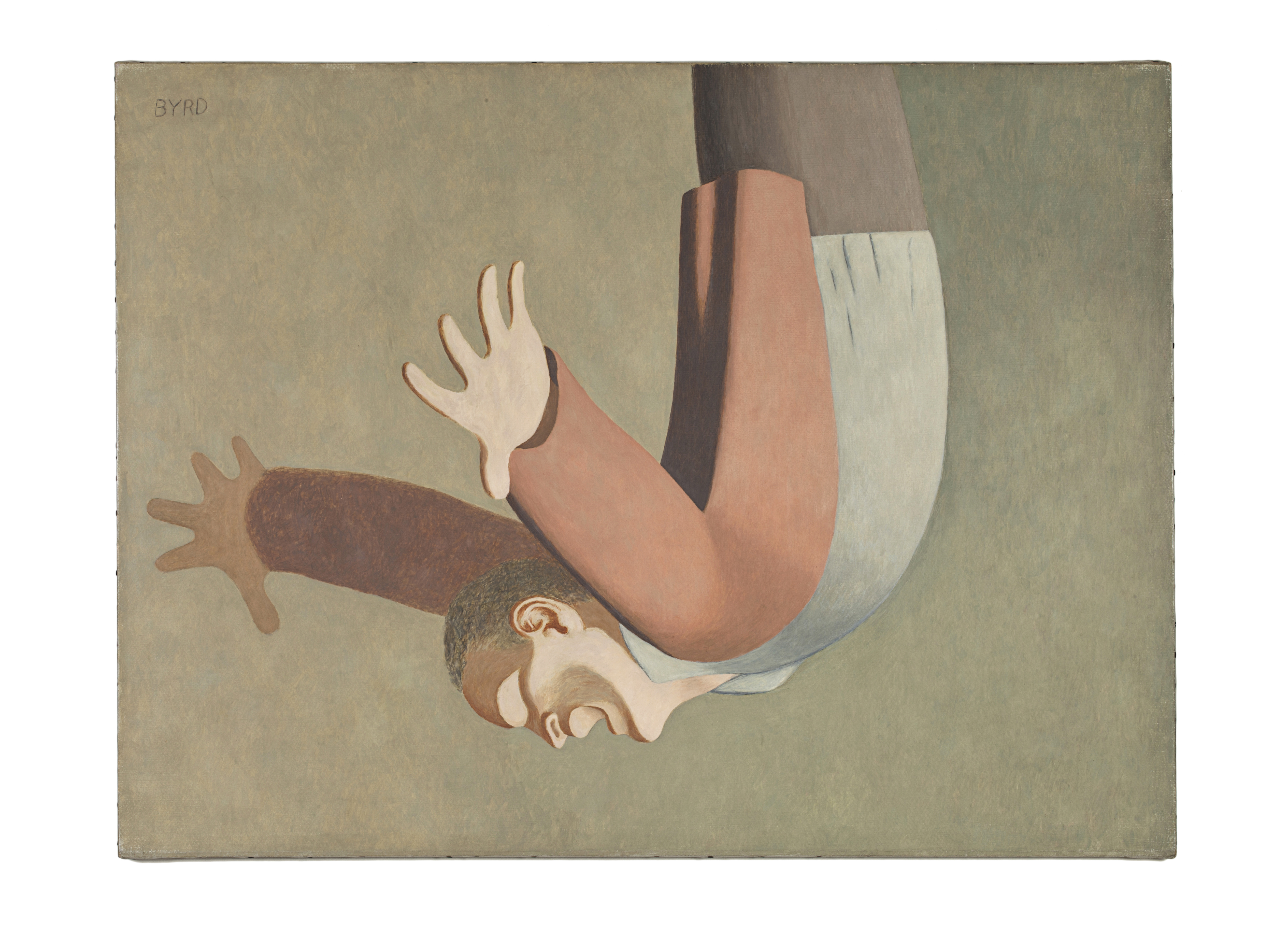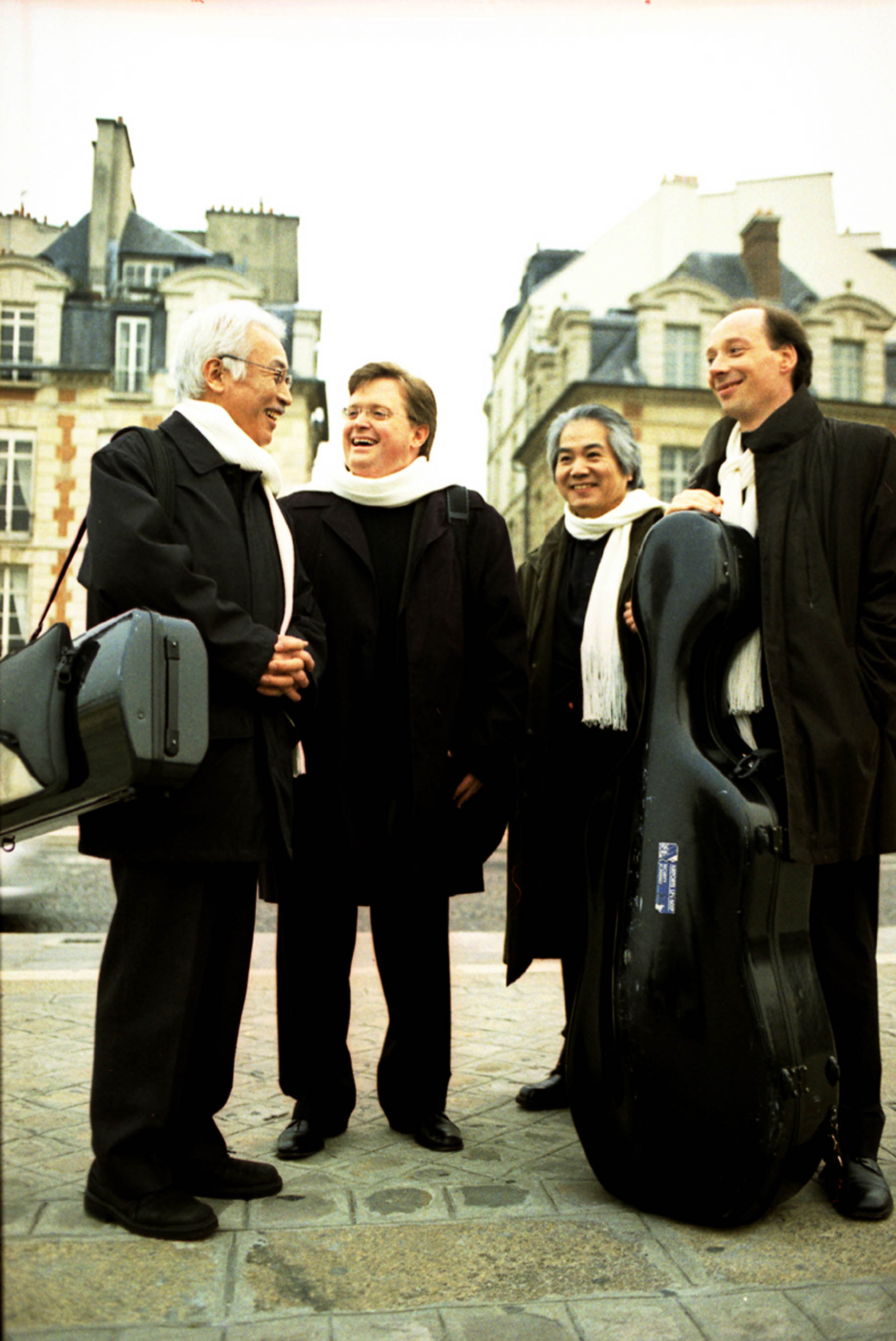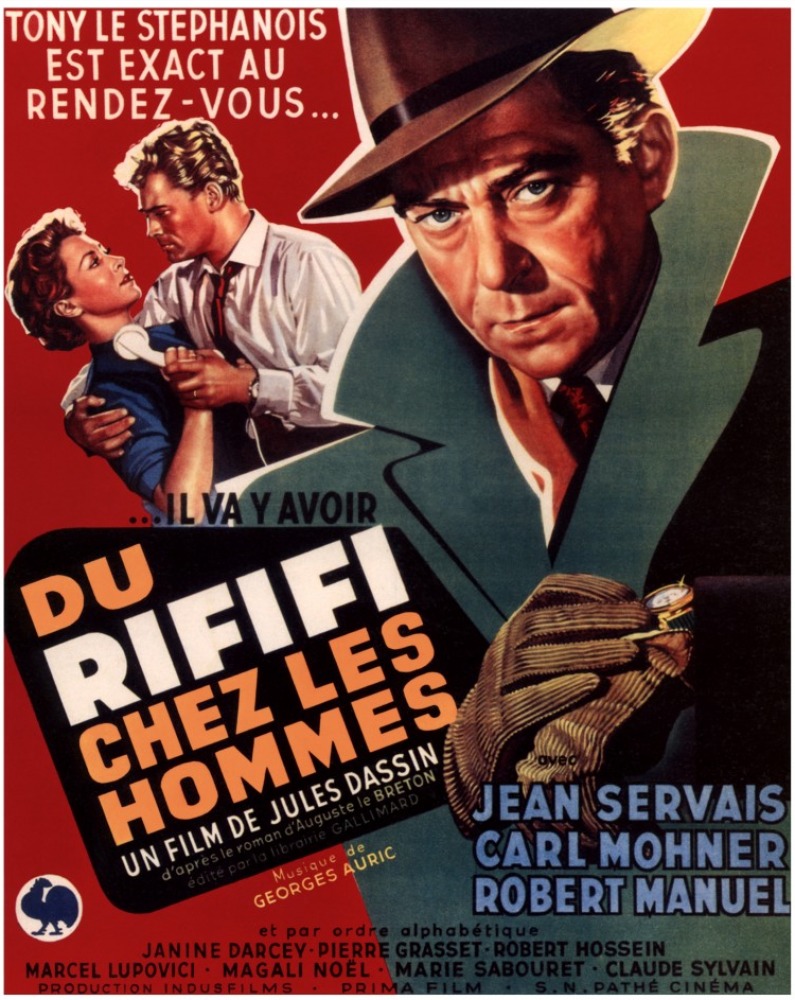Wednesday 4/17
Classical: Breaking Up Is Hard to Do
Many musicians compare the dissolution of a performing partnership to a divorce, and the Tokyo String Quartet has weathered several such upheavals, with 10 different members (five first violinists alone) since its 1969 founding. So when the only original member, violist Kazuhide Isomura, announced his retirement, the group decided to call it a day altogether—but not before a final tour. But the mood of tonight’s goodbye to Seattle won’t be particularly depressed. If anything, the program’s opener and closer suggest relief at leaving the peripatetic concert life behind: Mozart’s (mostly) genial quartet K. 499 and the lively pastels of Ravel’s 1903 quartet. Lera Auerbach’s String Quartet no. 6 will likely provide the pathos; the music I’ve heard of hers is spare and darkly glowering in a post-Shostakovich style—better yet, a post-(post-Shostakovich) style, taking up, in a way, where Alfred Schnittke left off. There’s no reason to think this quartet, premiered last November by the TSQ and subtitled “Farewell,” will be different. Meany Hall, UW campus, 543-4880, uwworldseries.org. $20–$38. 7:30 p.m.
GAVIN BORCHERT
Thursday 4/18
Literary: Connoisseur of Crime
Luc Sante is famously a lover of crime tales, old New York, and movies about crime in old New York. His book Low Life covered some of the same bloody ground as Gangs of New York, on which he advised Martin Scorsese. But Sante treats a different set of obsessions in The Other Paris, an evening of commentary and film clips from vintage French movies that celebrate crime and other misbehavior. Premiering here thanks to a commission from NWFF, this multimedia presentation reaches back to the silent era with a Fantomas movie (about the iconic French super-criminal), samples the postwar period with the classic heist film Rififi, and even includes a theory film by Guy Debord. The child of French-speaking Belgians who moved to the U.S. when he was a child, Sante is currently at work on a book called La Canaille: Paris and Its Rabble, about the underclass who lead revolts or lift your wallet. The French look differently upon crime; there’s a heroic aspect—at least in literature and film—to the man who refuses to live by bourgeois values. A bohemian himself, and a chronicler of New York’s Lower East Side during the ’70s, Sante has always sided with the outsiders. (Through Sat.) Northwest Film Forum, 1515 12th Ave., 267-5380, nwfilmforum.org. $12–$15. 8 p.m.
BRIAN MILLER
Friday 4/19
Film: A Mountain of Blow
One of the most influential films of the ’80s, Brian De Palma’s Scarface made Cuban immigrant coke dealer Tony Montana (played by Al Pacino) an icon of the VHS era. Its nothing-to-everything theme had great resonance for the young Snoop Dogg, Method Man, Ghostface Killah, Capone, Scarface (who adapted his nom de rap from you know who), Russell Simmons, and others. According to no less an authority than P. Diddy, Montana “was an upstanding gangster, which is a rare thing.” Certainly these fans are right on target about Scarface as a parable of unfettered American capitalism. All point not to the film’s violence but to its moral: Montana becomes a monster who deserves to be destroyed; he’s undone by his own excess. And a fun bit of trivia about the 1983 film: Screenwriter Oliver Stone claims to have kicked coke while writing Scarface in Paris. He got out of the game that Montana couldn’t quit. (R) Egyptian, 801 E. Pine St., 781-5755, landmarktheatres.com. $8.25. Midnight (repeats Sat.)
BRIAN MILLER
Stage: Coffee, Tea, or Three?
Sure, Boeing Boeing sounds like some leering old episode of Love, American Style. It’s about a horny American businessman, Bernard (Richard Nguyen Sloniker), living in Paris during the swinging ’60s. His plans for enjoying the affections of three separate stewardesses—not flight attendants, trust me, but stewardesses—are well-laid (forgive the pun), until the arrival of a pal from his school days and, particularly, the new efficiency of jet-age travel puts everyone in the right place at the wrong time. And did I mention the wry French housekeeper? Yeah, it’s that kind of show. But, based on the astonished audience and critical reactions to this translation of a Gallic farce, you wouldn’t have it any other way. Its 2008 Broadway revitalization took Tonys for Best Actor and Best Revival of a Play, four decades after the original flopped in New York. This more knowing Boeing Boeing wants nothing from you but a great night out, and it’s in the right hands here to deliver the goods. Allison Narver, an expert at encouraging actors to take quantum comic leaps, directs a cast headed by Oregon Shakespeare Festival clown Mark Bedard as Robert, the befuddled school chum. With Anne Allgood, a supreme Seattle character actress whose last name doesn’t lie, as the housekeeper and luscious local comedienne Bhama Roget as one of the high-flying hostesses, the production is primed to give pleasure. (Previews begin tonight; opens April 24; ends May 19.) Seattle Repertory Theatre, 155 Mercer St. (Seattle Center), 443-2222, seattlerep.org. $15–$80. 7:30 p.m.
STEVE WIECKING
Saturday 4/20
Visual Arts: The Lonely Crowd
Moments before the opening of his show Introduction: A Life of Observation, 87-year-old painter David Byrd was wheeled through the gallery in an office chair. “It’s really bright in here,” he said. “Yes,” gallery owner Greg Kucera replied, “you can really see all the detail of your work.” Lighting would be important to the artist, whose entire oeuvre had never been shown beyond the walls of his upstate New York home, which he built mostly himself. As visitors began to arrive, Byrd was escorted here and there by Kucera and others eager to discuss his technique and style. That style—and the reclusive, highly contemplative life from which it springs—is Hopperesque from one angle, with lonesome landscapes and character studies. From another, it’s vaguely surreal, with creeping themes of isolation and anxiety, a tendency toward the macabre. (Byrd was raised in foster care and spent 30 years as an orderly in a psychiatric ward.) Some images are deeply unsettling, like the man leaping to his death in Suicide, suspended in free-fall, his expression a strange mixture of relief and terror. During the First Thursday opening, Byrd obligingly answered questions but never appeared at ease amid the throng. Plucked from his solitary life, sitting next to his oft-grim paintings—one can only imagine what he thought of us. (Through May 18.) Greg Kucera Gallery, 212 Third Ave. S., 624-0770, gregkucera.com. Free. 10:30 a.m.–5:30 p.m.
GWENDOLYN ELLIOTT
Sunday 4/21
Books: Digging for the Divine
Way back in the late ’80s/early ’90s, you may recall snickering at one of those doomsday cults led by a woman named Elizabeth Clare Prophet. She and her peaceable Montana followers were preparing for the end of the world (for the rest of us, that is), digging a series of bunkers and shelters for themselves. Portland novelist Peter Rock was just out of college then, working near Yellowstone, and he observed these members of the Church Universal and Triumphant. He also probably laughed when the CUT went underground on March 15, 1990, and the world didn’t end. Decades later, a girl raised in the church would become one of Rock’s students at Reed College, and he began to interview her and other church members. The result is The Shelter Cycle (Houghton Mifflin, $23), which sympathetically considers how two grown children from the CUT circle would later adapt to the secular world. Living in Boise, pregnant Francine doesn’t talk about the church with her skeptical husband. Her neighborhood is in a panic over a girl who recently disappeared (possibly abducted), when her old playmate Colville arrives—a bizarre loner given to mystical visions who seems just like the sort of creep who might snatch your daughter. (That, in fact, is the subject of Rock’s acclaimed 2009 novel My Abandonment.) Both Francine and Colville miss the security and spiritual certainty of their cult, so both decide to travel separately back to the old communal grounds and hideouts, where sacred texts and survivalist gear remain. One expects the worst of their parallel journeys and increasing fervency (“I am the Violet Flame, I am the Violet Flame . . . ”), but Rock isn’t aiming for Stephen King territory here. Even the possibly schizophrenic Colville, who communicates with raccoons, has a kind of solemn dignity. He and Francine are believers in a lost creed, yearning for stability in a world with none to offer. Elliott Bay Book Co., 1521 10th Ave., 624-6600, elliottbaybook.com. Free. 3 p.m.






